9 most popular Linux package managers today
The common point between all Linux distributions is that they need to be able to install new software packages into the system. Depending on the distribution, different package managers are available, allowing users to install, manage and delete packages easily and quickly. In this article, TipsMake.com will discuss the different available package managers, which can be used for which distribution and what makes each package manager special. The article will include Debian-based package managers, package managers based on RedHat Enterprise Linux (RHEL) and other custom-designed package managers.
Learn about popular Linux package managers
- What is package management?
- Package managers based on Debian
- Dpkg package manager
- APT package manager
- Aptitude package manager
- Package managers based on RedHat Enterprise Linux (RHEL)
- RPM package manager
- YUM package manager
- DNF package manager
- Other package managers
- Pacman Package Manager
- ABS package manager
- Portage package manager
What is package management?
Package manager is a collection of software tools that automate the process of installing, updating, configuring and deleting applications.
Applications in Linux come in a package. The package is a file containing the desired software, along with all the software dependencies mentioned above. The reason the packages are used is because it simplifies the installation of Linux software. This is a standard way that developers use to provide and maintain software, as well as allow end users to install and update software. This makes Linux much easier to use than before, when most things have to be compiled by end users and often create problems.
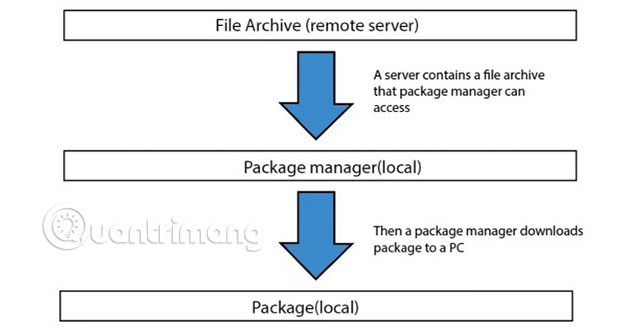
For more on how Linux package manager works, please refer to the article: Decoding how the package manager works and software installation on Linux.
Package managers based on Debian
Dpkg package manager
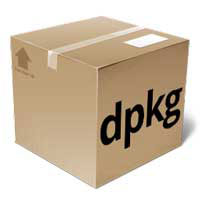
Ubuntu and Debian are considered one of the most widely used Linux-based operating systems on the market today. These two operating systems share the same package manager, with the lowest-level package management system dpkg, short for Debian Package. Dpkg is a basic package management software, with tools to install, remove and build packages.
However, dpkg lacks advanced features such as downloading packages from the Internet or automatic dependency settings. Being able to download packages from the Internet is very useful, as it allows users to add repositories to packages, greatly increasing the selection of software that is easily installed on the system. The software installation process is also streamlined, by being able to easily find and install the package with a single command.
APT package manager
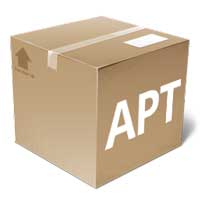
This is where the frontend like apt and aptitude work. APT, short for Advanced Package Tool, has much more advanced functionality when compared to dpkg. APT can also install, remove and build packages - however, its functionality does not stop there. APT can automatically update packages, automatically install dependencies and download the packages you need from the Internet. This is one of the most popular package managers installed on modern distributions. APT is preinstalled on Ubuntu, Debian and most other Debian-based operating systems.
Aptitude package manager

Aptitude is very similar to APT and provides most of the same functions as this package manager. But, Aptitude also provides some additional features, such as safety upgrades, that allow users to upgrade packages without deleting existing packages from the system. Packet retention is also available, which prevents certain packages from being upgraded automatically.
Both package managers actually use dpkg for basic operations and only use their own software to download and manage packages.
Package managers based on RedHat Enterprise Linux (RHEL)
RPM package manager
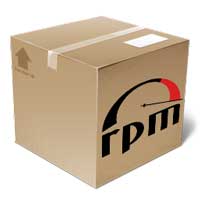
RedHat and CentOS are one of the most widely used operating systems and are easily found on today's servers. The basic package management software found on these systems is RPM, short for Red Hat Package Manager. The package manager also performs basic operations such as installing and removing packages, and like dpkg, RPM cannot manage packages or install them directly from the Internet.
YUM package manager

Like other Debian-based operating systems, the RHEL operating system also has its own software for managing packages. YUM, short for Yellow Dog Updater, is the most popular option in the form of RPM frontend. YUM opens up more functions for RPM files through archives, the ability to track what is installed on the system, keep up to date and more. YUM is optional based on RHEL equivalent of APT package manager.
DNF package manager
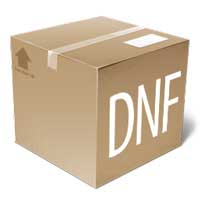
DNF, short for Dandified Packaging Tool, is the more modern and advanced version of YUM manager. DNF combines YUM's features, while improving performance and resource usage. Currently, only Fedora uses this next generation YUM version, but hopefully, users will see it appear on more operating systems in the future.
There are several other package management tools available for RPM-based systems, such as up2date, urpmi and ZYpp. However, these package managers are widely used as YUM or DNF.
Other package managers
Sometimes, developers will create special package managers designed for Linux distributions. They are usually designed based on the operating system and found on mainstream Linux distributions.
Pacman Package Manager

Pacman is the package manager found on Arch Linux. Pacman is the only package management tool found on Arch, making it not a frontend. Arch Linux is a rolling release operating system, with updates, added every day. There are only a few commands with Pacman, used to search, install and delete packages. This package manager can connect to the Internet and retrieve packages from it, making Pacman more user-friendly. However, Pacman is designed to install software from Arch repository, so it cannot be installed from third-party repositories.
ABS package manager

ABS, short for Arch Build System, is a system of tools for creating installable software packages for Arch Linux in addition to source code. The ABS package manager includes several parallel operating tools for creating packages. These tools are all standalone programs, such as makepkg, pacman, asp, etc. The method of creating / installing ABS usage packages differs from regular Linux distributions. Instead of installing pre-compiled packages, you need to create the PKGBUILD file from the Svn or Git branch using the asp package. Then, you use the makepkg command, use the PKGBUILD file to download and compile the source code for your system. This makes ABS a more intuitive method of installing packages on Arch Linux. There are also several other ways to use ABS, such as customizing existing packages or building and installing custom kernels.
Portage package manager

Portage is the package manager for Gentoo, a simple operating system, but must be compiled from the beginning when installed on any system. This is one of the most advanced package managers available, with new features and improvements being constantly added.
Although there are many choices when using package management software, most of them are designed to accomplish similar tasks. Therefore, it is best to test and see which package management program will work best for your needs.
In essence, installing software on Linux helps improve distribution and the ability to use package managers makes your life a lot easier. Usually, just enter a simple command and your software will be quickly installed. No need to search for the correct installation file or Internet version.
Wish you find yourself the right choice!